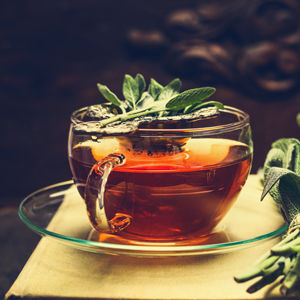
“It is generally believed that possible beneficial health effects of tea polyphenols are due to their antioxidant activity,” wrote lead author Hui Cheng Lee from the National University of Singapore.
“Evidence from our study indicates that phenolics are likely to benefit the host by inhibiting pathogen growth and regulating commensal bacteria, including probiotics, and could therefore be considered prebiotics.”
The health benefits of tea ranging from a lower risk of certain cancers to weight loss, and protection against Alzheimer's, have been linked to the polyphenol content of the tea. Green tea contains between 30 and 40 percent of water-extractable polyphenols, while black tea (green tea that has been oxidised by fermentation) contains between 3 and 10 percent. Oolong tea is semi-fermented tea and is somewhere between green and black tea.
The four primary polyphenols found in fresh tealeaves are epigallocatechin gallate (EGCG), epigallocatechin, epicatechin gallate, and epicatechin.
How the study was done
The new study, published in the Elsevier journal Research in Microbiology, looked at the effects of 31 different phenolics extracted from Yunnan Chinese tea on the growth of 28 different bacteria, including pathogenic, commensal (normal), and probiotics found in the intestine. These included strains of the aerobic pathogens E. coli, Salmonella, and Listeria, and probiotic Lactobacillus strains, and strains of the anaerobic pathogens Bacteroides and Clostridium, and probiotic Bifidobacterium strains.
Cells were cultured in the presence of 0,1 percent polyphenols at 37 degrees Celsius for 24 hours.
“Our data demonstrate that phenolic compounds have general inhibitory effects on intestinal bacteria. The level of inhibition varies depending on the bacterial species and chemical structure of the compound,” wrote Lee.
Indeed, growth of the pathogenic E. coli and Salmonella typhimurium were most strongly inhibited by the tea polyphenols and their metabolites, as were strains belonging to the Bacteroides and Clostridium genera.
Probiotic strains less affected
However, the researchers report that the growth of the probiotic Bifidobacterium and Lactobacillus strains were less affected by the tea compounds.
“Since probiotic growth was relatively unaffected by most of the aromatic compounds tested, probiotic colonisation in the intestine should continue in the presence of phenolics so as to improve the intestinal microbial balance and inhibit pathogen growth,” said the researchers.
“Although not fully comprehensive, this in vitro study indicates a substantial number of complex interactions between intestinal bacteria, phenolics and their metabolism,” they said.
They called for more research to further investigate the influence of the tea polyphenols on gut microflora, and the overall maintenance of human health and disease prevention, and said that the research suggests that the antioxidants may also be prebiotic. - (Decision News Media, December 2006)




 Publications
Publications
 Partners
Partners














